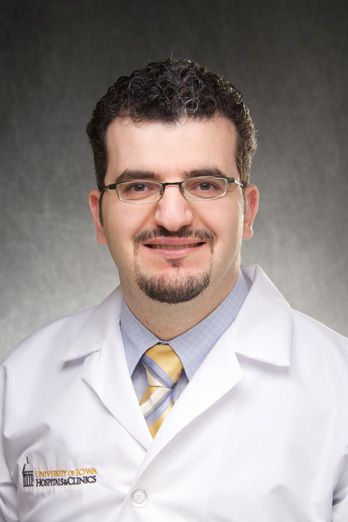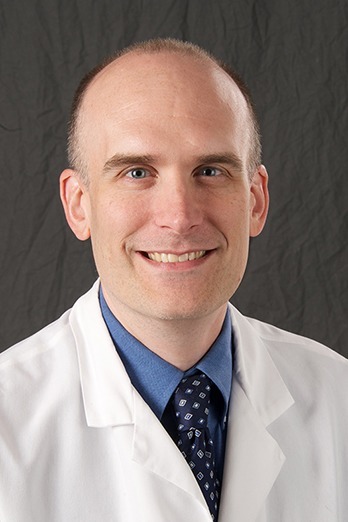The most common signs of bladder cancer are changes you notice while urinating.
The bladder is a balloon-like organ in your lower abdomen that stores urine. The most common early symptoms of bladder cancer are blood in your urine, pain when you urinate, and having to urinate more often than you usually do.
If you have any of those symptoms, that doesn’t mean you have bladder cancer. They could be signs of other conditions that aren’t cancer.
Some bladder cancer symptoms come later, after tumors start to grow. Those symptoms could include not being able to urinate, feeling weak, losing your appetite, or pain in your lower back.
It’s important to talk to your doctor about what’s causing your symptoms.
- Smoking increases your chances of getting bladder cancer.
-
The cause of bladder cancer is not known, but some things seem to increase the chances of getting bladder cancer:
- Smoking
- Being exposed to certain types of industrial chemicals, such as chemicals in dyes and paint
- Not drinking enough fluids
Bladder cancer is also more common in men and in people who are over age 55. Caucasians are more likely than African Americans and Latinos to get bladder cancer.
Your chances of getting bladder cancer are also higher if your family has a history of bladder cancer.
- The most common type of bladder cancer is TCC, also known as non-muscle invasive bladder cancer, or NMIBC.
-
The most common kind of bladder cancer is called urothelial carcinoma, which is also called transitional cell carcinoma, or TCC.
TCC tumors grow in the inner lining of the bladder but have not reached the bladder's outer muscle layer, which is why it is sometimes called non-muscle invasive.
Some of these tumors have the potential to grow into the muscle layer and spread to other parts of the body. Those tumors are much more difficult to remove and treat.
TCC tumors also can grow in the kidneys and other parts of the urinary tract.
- Screenings may include a cystoscopy.
-
Your urology doctor may check for bladder cancer by doing a procedure called cystoscopy.
A cystoscope is a thin tube that the urologist uses to see inside the bladder and the vessel that urine moves through when it leaves the bladder during urination. The tube has a light and either a lens or a camera.
Doctors at Holden Comprehensive Cancer Center use blue light cystoscopy to test for bladder cancer. In blue light cystoscopy, a light-sensitive drug is put into the bladder during the procedure. The doctor then uses a blue light with the cystoscope to look for signs of cancer. Cancer cells that have the light-sensitive drug on them will glow in the blue light, making it easier for the doctor to see them.
If the doctor finds areas in the bladder that look abnormal, a biopsy may be necessary. In a biopsy, the doctor removes tiny pieces of tissue from the bladder and sends them to a lab for tests.
- Treatment is customized for your cancer.
-
Bladder cancer can be treated with surgery, chemotherapy, radiation, or immunotherapy drugs such as intravesical BCG.
Each patient’s treatment is customized based on several factors, including how advanced the cancer is. Many bladder cancer patients receive more than one type of treatment.
Surgery can range from removing small parts of the bladder to removing the bladder entirely. Sometimes the surgery can be performed through the urethra using a cystoscope.
Chemotherapy uses drugs to treat cancer and could involve putting the drugs directly into the bladder or infusing through the bloodstream. Sometimes chemotherapy is used before surgery to try to shrink the tumor before it is removed.
Radiation can be used in several different ways, including as a way to kill any tumor cells that weren’t removed during surgery.
Immunotherapy drugs help the body’s own immune system kill cancer cells. Immunotherapy is an exciting recent development in cancer treatment that has shown lots of promise. Intravesical BCG is one type of immunotherapy drug that can be helpful in killing bladder cancer cells.
As with all types of treatment, immunotherapy is only right for certain patients under certain circumstances. Which treatment you receive will be a decision you and your doctor make together.
Here’s what sets us apart.
You can trust the experts at Holden Comprehensive Cancer Center to use the most advanced techniques to diagnose and treat your bladder cancer, including blue light cystoscopy and the newest drugs available.
Bladder cancer patients at Holden benefit from:
- The Cysview blue light cystoscopy system: Holden urologists use this technique because it helps them see bladder cancers better, and it improves their ability to remove all the tumor cells so the cancer doesn’t come back.
- Experts focused on bladder cancer: Our team of specialists focuses on cancers of the urinary system. They understand bladder cancer, and they know about the most recent innovative treatments.
- Clinical trials of the latest therapies, including some not yet on the market: We offer access to the most recent treatment methods and therapies, and our doctors are cancer researchers who are at the forefront of the latest breakthroughs.
- Robotic and standard surgery options: Holden offers a range of surgical procedures for bladder cancer patients, from transurethral resection, also called TUR, to radical bladder removal, also called cystectomy. We also offer robotic cystectomies.
- A promising new treatment for NMIBC, invented by our surgeons: Our bladder cancer experts created a new treatment that uses two chemotherapy drugs — gemcitabine and docetaxel, also called gem/doce — to treat NMIBC. Research has shown that gem/doce works as well or better than BCG. And as a widespread shortage of BCG affects cancer patients everywhere, many of the world's leading cancer centers have turned to our gem/doce combination to treat NMIBC.

“There was nobody giving up on me when I needed help.”
Meet our bladder cancer specialists.
Internal Medicine Physicians
Pathology Physician
Radiation Oncology Physicians
Radiology Physician
Urology Physicians
Genetic Counselor
Physician Assistant
Research Nurses
- Michelle Arnold, RN
- Susan Butcher, RN
- Janan Geick-Miller, RN
- Mary Schall, RN
- Jill Wegeman, RN
- Pam Zehr, RN
Cancer Care Clinics
Clinical Cancer Center
21602 Pomerantz Family Pavilion (PFP)Elevator M, Level 1
Phone: 1-319-356-4200














